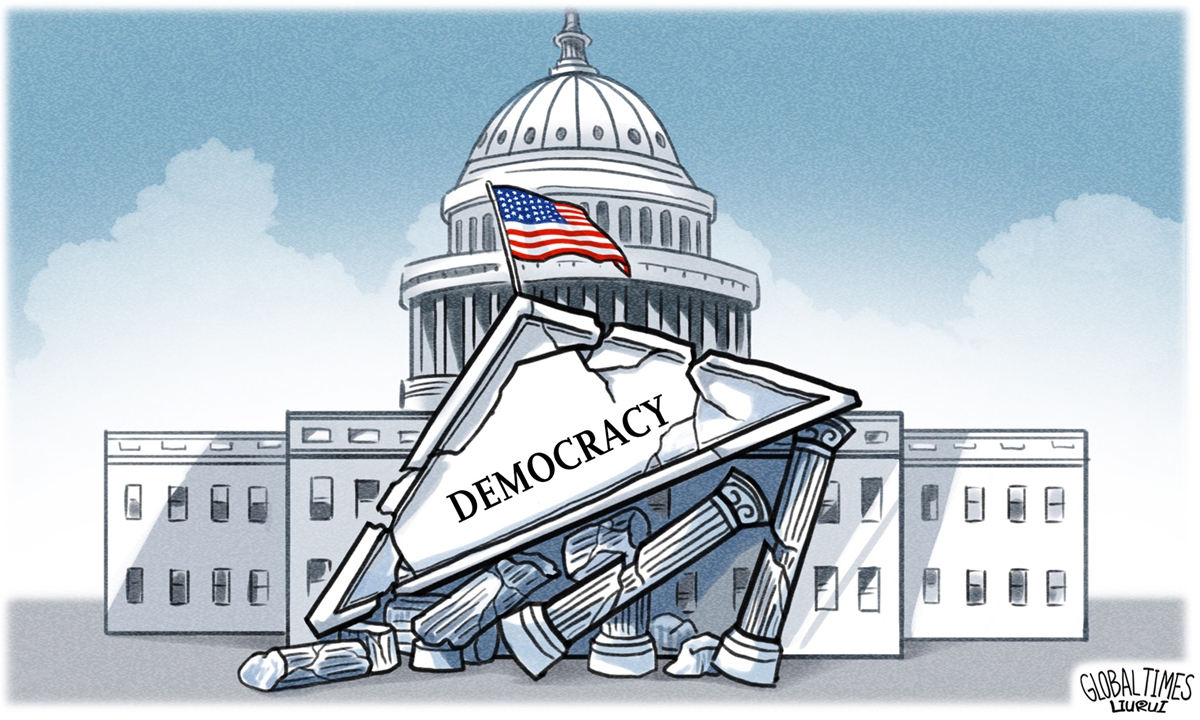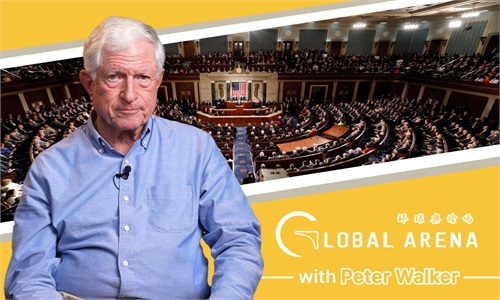
Crumbling US democracy. Illustration: Liu Rui/GT
I had an interesting conversation with a senior government official in China when I was writing my first book, Powerful, Different, Equal: Overcoming the Misconceptions and Differences between China and the US. I made the observation that most people think of China as not being a democracy, whereas the US is regarded as the most enduring and established democracy.
He corrected me. He said, "We actually are a democracy, but we have a different definition of democracy. Your definition is an electoral democracy, which means government officials are selected based on who gets the most votes. Our definition of democracy is a government that's responsive to the people."
I thought it was a very interesting distinction. What does listening to the people actually mean? If you go back to reform and opening-up, prosperity was the No.1 and sovereignty was high on the list. If you follow the moves taken by the Chinese government, they clearly are sensitive to what the people are looking for and take real initiatives to address issues.
Looking at the US model, you basically count the votes of everyone who was eligible to vote. But that system has evolved in a way that is undermining democracy. If you go back to the 2020 election, you had the revolt that took place in Washington on January 6, 2021, where people were trying to genuinely overturn the legitimate election. And it was made legitimate because there were over 60 court cases where the other side was given the opportunity to bring facts forward to demonstrate that there was fraud in the election in every single case. But the anti-government position was defeated as they presented no evidence that was credible.
If you look at what has happened at the party level between the Democrats and the Republicans, there are a lot of very specific initiatives that are totally meant to favor one side or the other that are becoming increasingly common.
As an example, we have something in the US called "gerrymandering" that gives the state government the right to redraw district lines in terms of how you tally the votes for electing people to Congress and also to the State Houses. What happens is if the Republicans are in charge, they draw the districts in a way where the other side, the Demowcrats, capture almost all of the votes in one district and the Republicans are able to capture more votes in other districts. Then you can have situations where the Democrats win the total popular vote in that state, but there are more people in Congress from that state from the Republican side. Clearly, this process is non-democratic.
The other thing that we've seen is the rules for voting have changed. You have voting stations that are opened in areas that favor one party, but not the other. You could see that if the Democrats have strong support from the black vote, the Republicans will try to make it difficult by not opening polling stations in black communities.
If you add up all the things that are done in the name of trying to tilt the election in one direction or another, the net result is they are substantial. I personally feel that if the ultimate test of democracy is serving the people, the Chinese model is actually more directly doing that, and the government has been more responsive on that dimension.
The author is a speaker on China-US relations and author of the book Powerful, Different, Equal: Overcoming the Misconceptions and Differences between China and the US. opinion@globaltimes.com.cn

